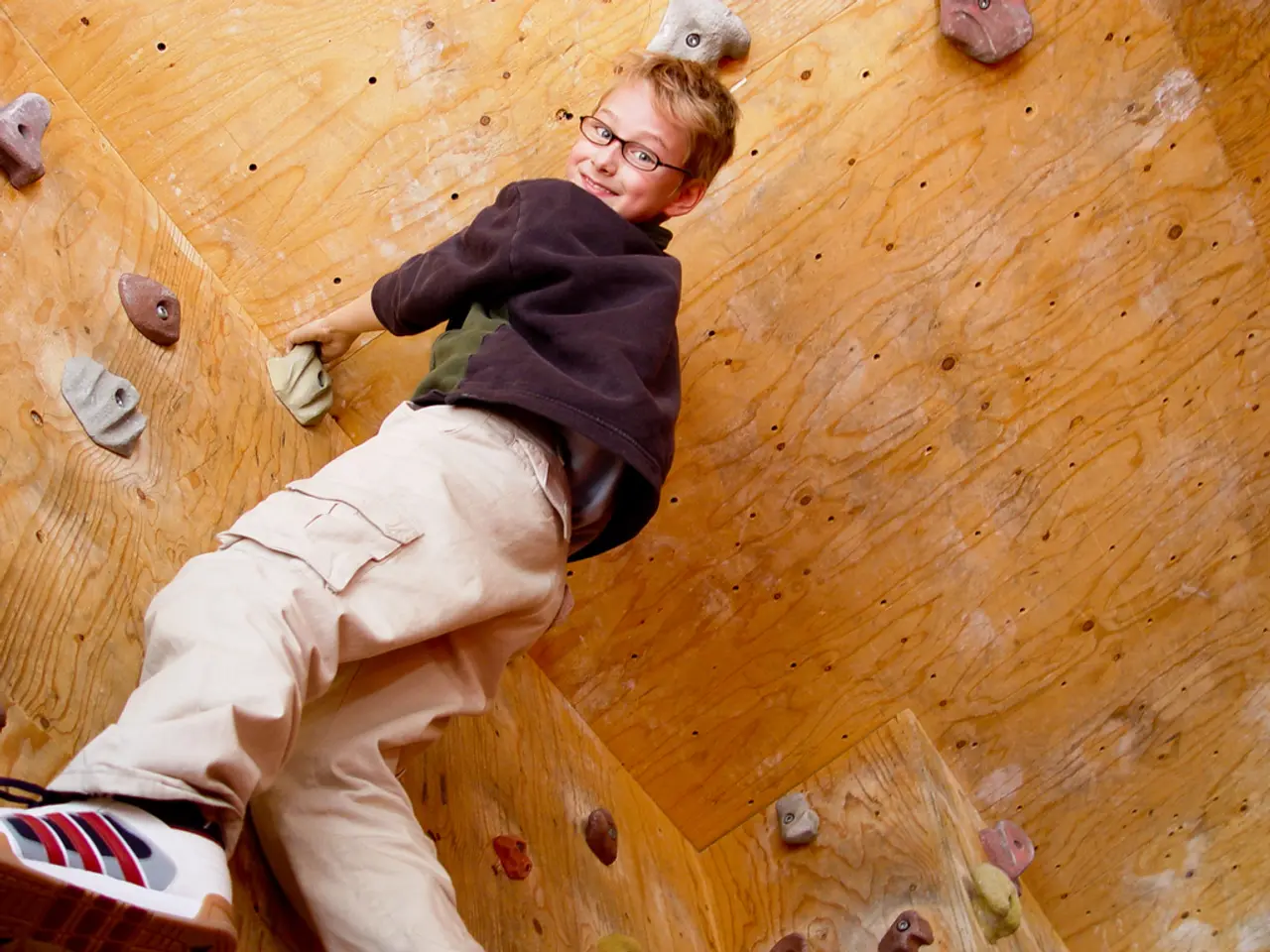Rock Climbing: A Blend of Cardio and Strength Exercise?
Government Offers Solar Panel Grants to Irish Homeowners
The Irish government has announced a new program to encourage the use of renewable energy sources, with grants of up to €1,800 available for homeowners living in specific eircodes. These grants are part of an initiative aimed at promoting the use of solar panels, which can help reduce carbon emissions and energy costs.
However, the specific eircodes eligible for the grants have not yet been specified. Homeowners interested in the scheme are advised to check the government's official website for more information.
Indoor Rock Climbing Shows Promise as a Treatment for Depression
A study has suggested that indoor rock climbing, also known as bouldering, could be a new treatment for depression. The study, which was a waitlist-controlled randomized group pilot study, involved college students and found that the first results indicate positive effects on depression.
The study did not specify the exact duration or intensity of rock climbing sessions required for significant improvements in physical fitness, nor did it specify whether the benefits of rock climbing exercise are limited to college students or extend to other age groups.
Furthermore, the study did not provide any information on whether the benefits of rock climbing exercise extend to other mental health conditions beyond depression.
A review article and meta-analysis, however, found that rock climbing exercise improves physical fitness among college students. This suggests that rock climbing could be a beneficial addition to regular exercise routines for college students, although more research is needed to confirm this for other age groups and mental health conditions.
Nocturnal Calf Cramps May Indicate Circulatory Problems
Recurring nocturnal calf cramps can indicate several potential health conditions, particularly related to circulation and nerve issues. They are often linked to poor circulation in the lower extremities, which can signal vascular disorders such as peripheral artery disease (PAD), chronic venous insufficiency (CVI), deep vein thrombosis (DVT), or lymphedema.
Specifically, PAD can cause leg cramps and pain at night, especially during rest when blood flow is insufficient, and is often accompanied by symptoms like leg numbness, coldness, skin discoloration, slow hair or nail growth, and non-healing sores. CVI, involving weak valves and blood pooling in the legs, can cause aching, cramping, and swelling at night, commonly involving calf muscles. DVT may cause cramping alongside swelling and warmth in the leg due to blood clots in deep veins. Poor venous circulation generally can lead to frequent calf cramps and muscle fatigue at night.
However, nocturnal calf cramps are not always caused by circulatory problems. Other possible causes include nerve-related issues (e.g., lower back problems) or idiopathic reasons (cause not well understood). Laboratory tests may be used to rule out other causes, but nocturnal cramps are typically benign and do not always require extensive work-up.
In summary, if recurring nocturnal calf cramps are persistent or worsening, especially with signs like skin changes or swelling, medical evaluation is strongly advised to rule out serious vascular problems or other underlying causes.
The study on indoor rock climbing as a treatment for depression also found that rock climbing improves physical fitness among college students, suggesting a potential addition to health-and-wellness routines, and fitness-and-exercise regimes. Conversely, recurring nocturnal calf cramps may signify circulatory problems, which could leadhealth professionals to advise physical fitness assessments and recommend appropriate sports activities to improve overall health.




